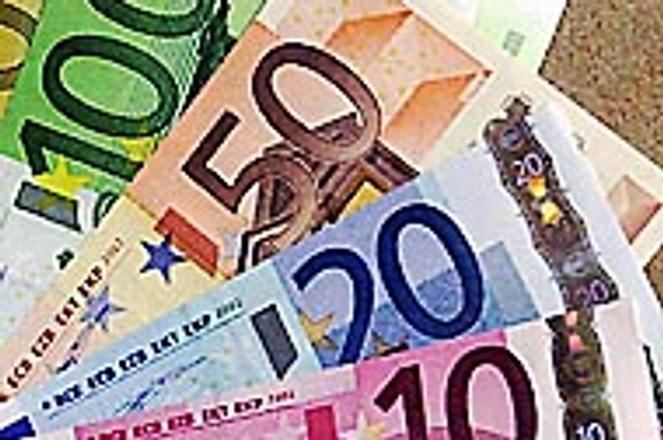On March 1 there will be only one currency in the Eurozone.photo: TASR
SLOVAK financial sector experts have rejected suggestions in the west that there may be serious problems with "mattress money" following the introduction of the euro.
The January 1 change to the single currency in 12 European states saw the death of a number of old currencies but left a two month period in many countries, including those in central Europe, for people to change what Deutsche marks, francs and schillings they had left.
But a lack of information on the need to convert currency quickly, combined with the huge sums of old euro zone currencies people are holding at home - literally under mattresses - rather than in bank accounts, could mean many people missing out on changing money and seeing lifetime savings disappear, some western research houses said.
However, pre-New Year information campaigns and a general level of awareness should see relatively few people fail to change cash in old Eurozone currencies over to euros, Slovak experts said.
"There has been more than enough of a public campaign about the euro and people are generally aware that they have to convert their money. There will probably be an issue with 'mattress money' but it won't be a significant amount of money," said Tomáš Kmeť, analyst at Slovenská sporiteľňa.
"The kind of people who have large amounts of foreign currency are sophisticated enough anyway to know about the euro," he added.
In many countries in central and eastern Europe the Deutsche mark in particular has been stored by people as a currency of value. It is hard to calculate precisely how much is floating around, but before the end of the year Deutsche Bank's research houses estimated there was as much as 1 billion Deutsche marks in Slovakia out of a possible 30 billion in the region.
While some have held it in denominated accounts there are a number who have kept the money at home, distrustful of banks.
Bank crashes across the region are not uncommon and in Slovakia there have been a number of high-profile bank crashes in the last two years, the most recent of which was the fall of Devín bank in August last year. The bank went down with more than Sk11 billion in clients' money in its accounts.
The money held in old currency accounts will have been converted into euros automatically on January 1. However, with no idea of what money is being held at home and will be turned in over the next six weeks to banks by members of the general public, some people could end up with large sums of worthless notes.
"The question is how informed are people on ground level, at an individual level, that they have to change over this money within the next month or so, and do they know that if they don't do it what kind of problems they'll have?" said Jeff Gable of Deutsche Bank in London.
"What will happen when some people realise this six months down the line?" said Gable.
So far, though, Slovak banks have reported healthy number of people changing money into euros. The two largest, VUB and Slovenská sporiteľňa (SLSP), have said many people are coming in to change old currencies and Tatra banka, the most profitable bank in Slovakia, reported a number of people switching accounts to euros well before December 31.
Other have also pointed to the success of information campaigns in 2001 to make people aware they had to hand in old currencies before the end of February.
Andrea Ulicna of IRB bank, the country's sixth largest said: "We've had no problems with people changing euros so far. Most of our clients switched their accounts to the new currency."

